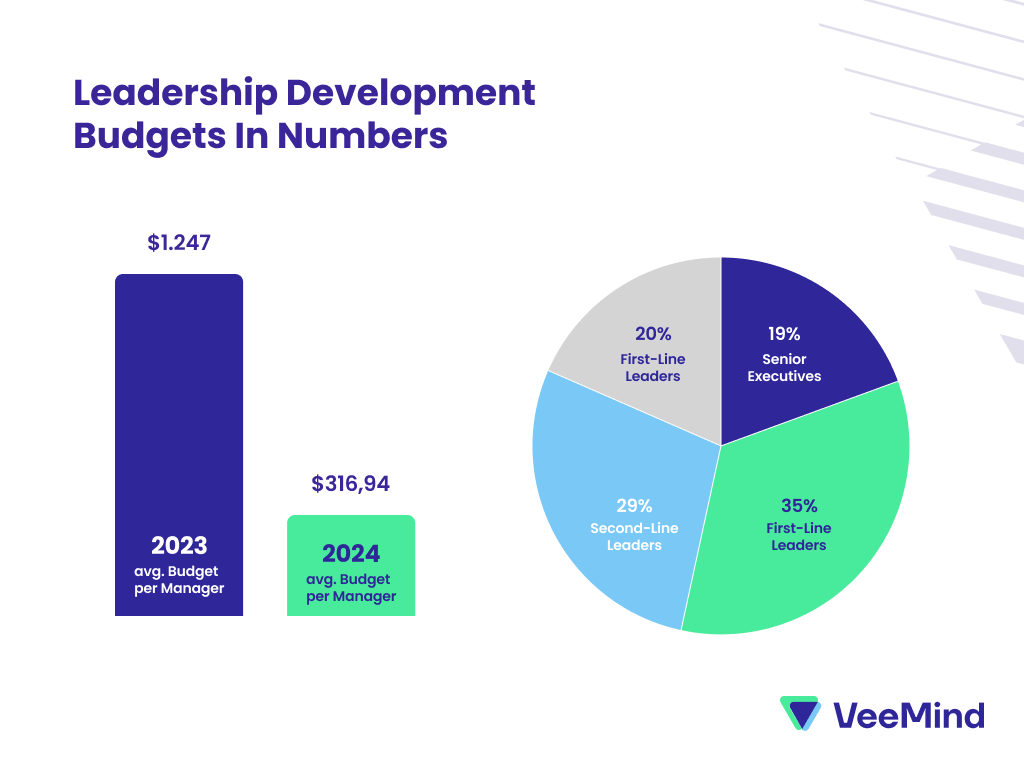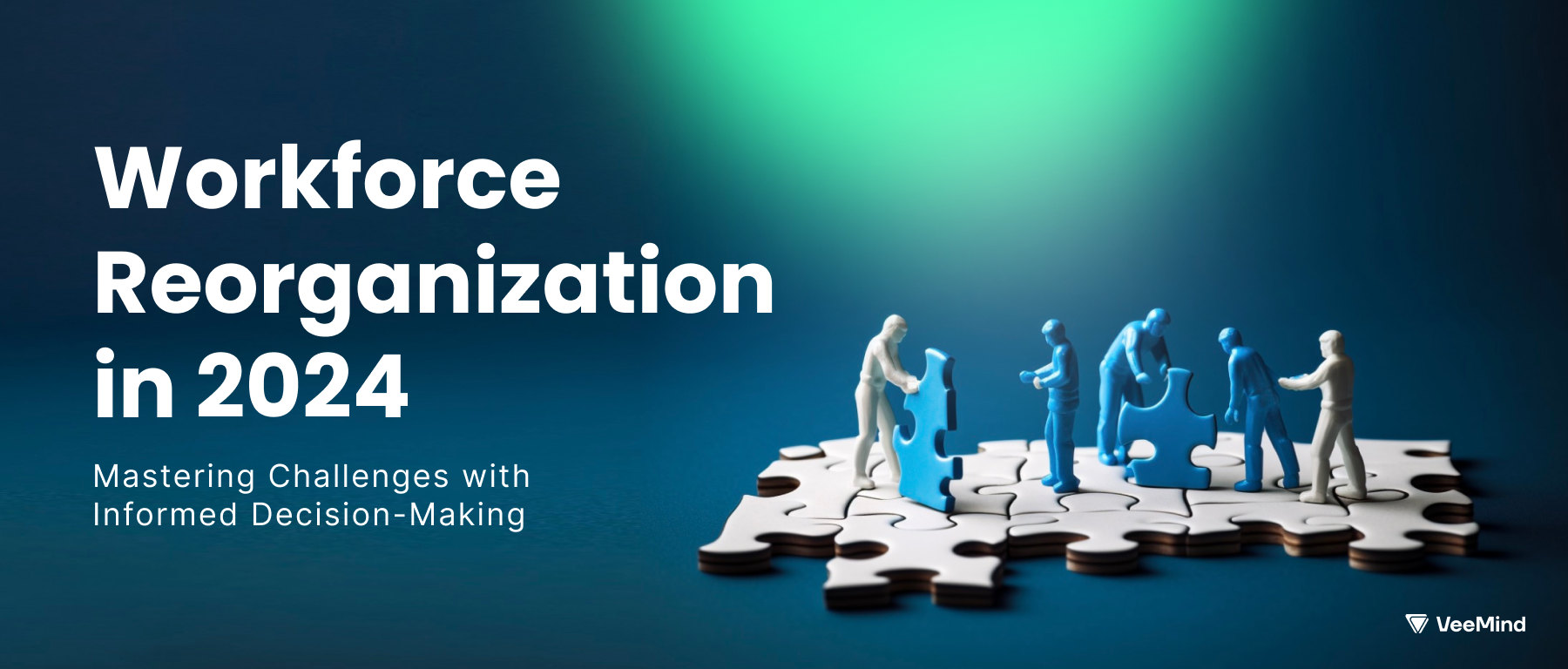The State Of Leadership Development In 2024

“Price is what you pay. Value is what you get.”
This simple yet profound statement by Warren Buffet encapsulates a fundamental principle that transcends the world of finance, permeating into every facet of business strategy, including leadership development programs.
As organizations grapple with the imperative to invest wisely in nurturing their talent pool, Buffet’s words serve as an impactful reminder to look beyond the initial cost and assess the true value that these programs deliver.
With this article, we are pressing the problem faced by leadership development professionals in demonstrating measurable impact and proving the value of their programs in the face of budget cuts, economic uncertainty, and increased expectations for results.
With the challenging economic climate leading to reduced resources and heightened scrutiny on the effectiveness of leadership development initiatives, professionals in this field are tasked with the critical challenge of showcasing the tangible benefits, outcomes, and return on investment of their programs.
VeeMind is to provide insights, strategies, and data-driven approaches to help leadership development professionals navigate these challenges, optimize their programs, and drive impact in a rapidly changing business environment.
Higher Value - Lower Price
According to recent insights, the average budget for leadership development programs has plummeted by a staggering 70% since January 2023, reflecting the widespread impact of layoffs and drastic cuts across the industry.
Worldwide, budgets for leadership development have plummeted significantly from an average of $1,247 per Manager in 2023 to as low as an average of $312.50 in 2024.
Looking ahead, the forecast offers little respite, with the majority of leadership development professionals anticipating stagnant or further reduced budgets. Against this backdrop of financial uncertainty, the imperative to rethink traditional approaches to leadership development has never been more pressing.
In response to budgetary constraints and resource limitations, leadership development professionals are doubling down on their efforts to train for and measure impact. The priorities for 2024 underscore a clear shift towards outcomes-driven strategies, with measurement, ROI, and employee engagement soaring to the top of the agenda.

It is abundantly clear that leadership development professionals recognize the imperative of proving their value in order to safeguard their programs amidst the prevailing economic headwinds. Failure to demonstrate tangible impact and ROI risks further erosion of budget and resources, exacerbating the challenges posed by an unforgiving economic climate.
Measured Impact
Prioritizing impact measurement has become increasingly pronounced.
However, despite the eagerness of leadership development professionals to embrace this shift, recent insights suggest that many will be starting from scratch when it comes to measuring impact in 2024.
Surprisingly, less than half of leadership development professionals currently measure behavior change (39%), and an even smaller fraction measure business impact (22%). This disparity becomes even more glaring when compared with the top priorities identified by these professionals for the year 2024, where metrics, measurement, and ROI reign supreme.
The discrepancy between the aspiration to measure impact and the current lack of established measurement practices underscores the evolving landscape of leadership development. As budgets dwindle and professionals endeavor to justify their value and secure necessary resources, it becomes increasingly apparent that robust measurement practices will be paramount.
In this context, those that evaluate the transfer of learning into on-the-job behavior change and the resulting business outcomes, will serve as the anchor in demonstrating the tangible impact of leadership development initiatives. By focusing on these higher-level measurements, leadership development professionals can effectively showcase the value they bring to the organization and pave the way for continued investment and support.
#1 Demand: Coaching Skills For Managers
The rationale behind this emphasis on coaching skills stems from a fundamental recognition of the pivotal role that managers play in shaping the employee experience. With retention and internal mobility intricately linked to the quality of an employee’s relationship with their manager, organizations are increasingly cognizant of the imperative to equip managers with the tools and techniques necessary to engage, motivate, and develop their teams effectively.
By prioritizing coaching skills for managers, leadership development professionals are not only investing in the individual success of employees but also laying the groundwork for long-term organizational success.
Closely trailing behind coaching skills on the list of top priorities is the perennially relevant topic of leading change. In an era characterized by rapid technological advancements, shifting market dynamics, and unprecedented levels of uncertainty, the ability to navigate change effectively has emerged as a hallmark of effective leadership.
Against this backdrop, leadership development professionals are tasked with equipping leaders with the requisite skills and competencies to steer their teams through periods of upheaval and transition. Whether grappling with digital transformation initiatives, organizational restructuring, or cultural shifts, leaders must possess the agility, resilience, and strategic foresight to lead their teams through turbulent waters and emerge stronger on the other side.
Should Leadership Development Be Mandatory?
The latest statistics reveal a compelling narrative about the state of leadership development initiatives within organizations: while a majority acknowledge its significance, there remains a significant cohort where its necessity is not universally recognized. According to recent surveys, 54% of organizations affirm that leadership development is indeed mandatory, underscoring a prevailing acknowledgment of its importance in cultivating a robust talent pipeline and driving organizational success. However, the remaining 46% indicate a notable absence of mandatory leadership development programs within their organizational framework.
This disparity between recognition of value and actual implementation underscores a fundamental disconnect between perception and practice. Despite the growing consensus regarding the pivotal role of leadership development in fostering a culture of innovation, resilience, and strategic agility, many organizations have yet to fully integrate these principles into their operational ethos.
At its core, this incongruity highlights the need for organizations to bridge the gap between rhetoric and action when it comes to leadership development. While affirming its importance is a crucial first step, true commitment to cultivating leadership talent necessitates concrete investment in resources, infrastructure, and organizational culture conducive to growth and development.
Technology and Data Literacy for Leaders in 2024
Technology and data literacy have emerged as indispensable skills for leaders striving to navigate the complexities of the digital age. As highlighted in a recent analysis, leaders across industries are recognizing the critical need to enhance their proficiency in technology and data to drive strategic decision-making, foster innovation, and ensure organizational resilience.
The accelerated pace of digital transformation stands as a defining characteristic of the contemporary operational environment. Businesses worldwide are embracing advanced technologies such as artificial intelligence, machine learning, and automation to streamline processes, enhance efficiency, and gain a competitive edge. In this context, technology literacy has become essential for leaders seeking to navigate digital transformations seamlessly and harness the full potential of emerging technologies.
Furthermore, the era of data-driven decision-making has firmly taken root across industries. Organizations increasingly rely on data insights to drive strategic initiatives, optimize operations, and anticipate market trends. Leaders who possess solid data literacy skills can interpret complex datasets, derive actionable insights, and contribute to the formulation of informed, data-driven strategies that propel their organizations forward.
Moreover, the integration of emerging technologies such as augmented reality, blockchain, and edge computing further underscores the importance of technology literacy in the modern business landscape. Leaders equipped with a deep understanding of these technologies can leverage their capabilities to drive innovation, enhance customer experiences, and unlock new opportunities for growth.
Additionally, the widespread adoption of advanced automation and artificial intelligence highlights the need for leaders who can effectively navigate and harness the potential of these transformative technologies. By embracing automation and AI integration, leaders can optimize processes, improve productivity, and drive operational excellence across their organizations.
In conclusion, as we journey through the intricacies of the digital age in 2024, the imperative of technology and data literacy for leaders cannot be overstated. By investing in these critical skills, leaders can position themselves and their organizations for success in an era defined by rapid technological advancements, data abundance, and relentless innovation. Now, more than ever, leaders must embrace technology and data literacy as essential components of their leadership toolkit to chart a course towards sustainable growth, resilience, and competitive advantage in the digital era.
Organizations have to adapt to the evolving landscape of leadership development in 2024, Buffet’s timeless quote rings truer than ever.
In the face of budgetary constraints and heightened scrutiny on ROI, the imperative to deliver tangible value and measurable impact has never been more pronounced. As HR professionals strive to bridge the gap between the price of leadership development programs and the value they deliver, they need a partner who can help to focus on measurements that are closely tied to impact.
Through data-driven insights, personalized recommendations, and a relentless focus on outcomes, VeeMind empowers HR professionals to unlock the full potential of their leadership talent, drive organizational growth, and cultivate a culture of excellence and innovation.
The journey of leadership development in 2024 is not merely about the price of investment, but rather the value of transformation and growth that it yields.
If you are looking for a trusted partner to navigate this journey with confidence, resilience, and purpose by transforming challenges into opportunities and realizing the true value of leadership excellence in the digital age, we should sit down and talk.

